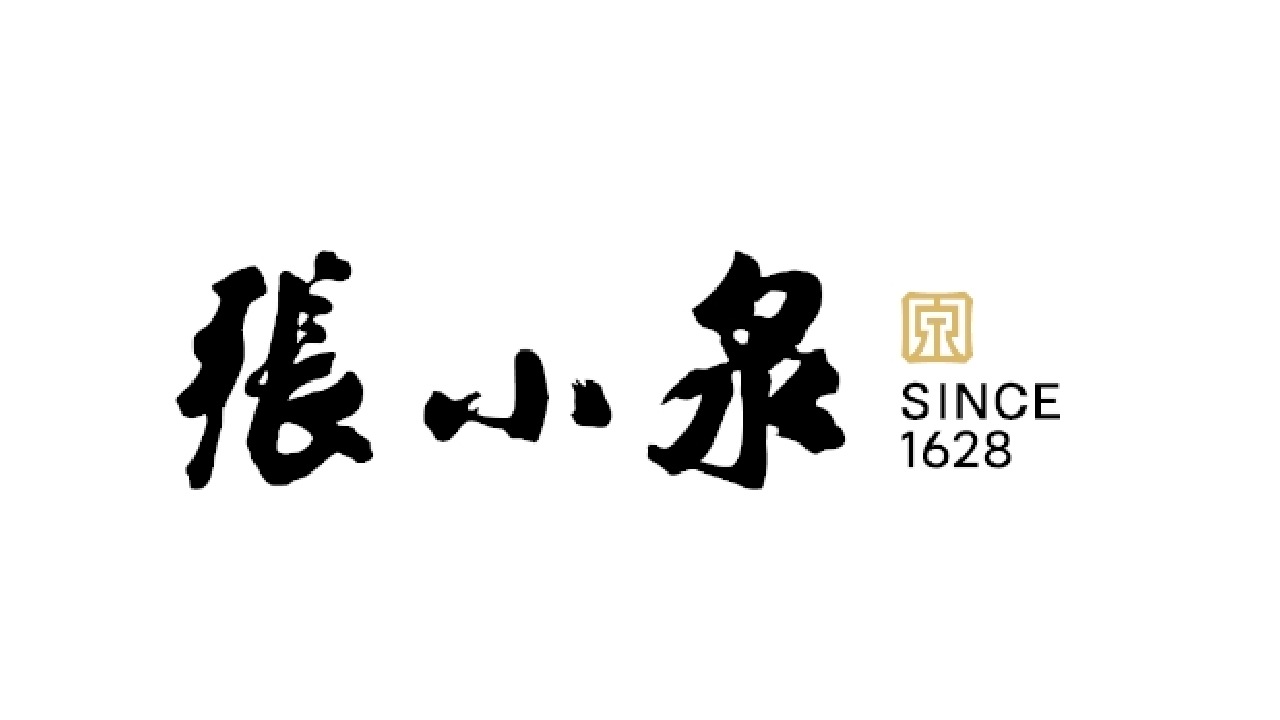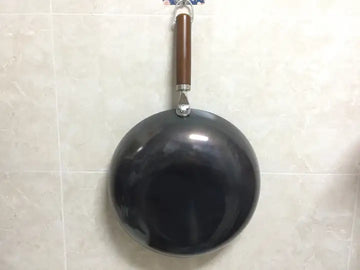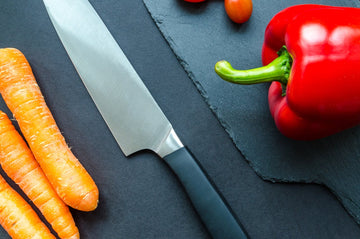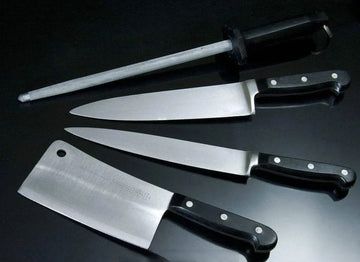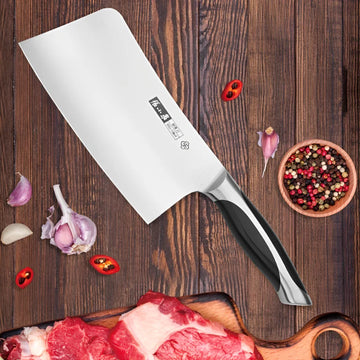Table of Contents
Why Season Your Wok? The Aussie Guide
Ever wondered why your mate's stir-fry never sticks to their wok, while yours looks like a crime scene? The secret isn't magic – it's proper seasoning. Think of seasoning as creating a natural non-stick coating that gets better with age, like a fine Australian wine.
Seasoning your wok serves two crucial purposes. First, it removes any nasty factory residues and gives your new wok a proper clean. Second, it creates a protective layer that prevents rust and makes cooking a breeze. Without seasoning, your wok is basically a glorified rust bucket that'll have your prawns welded to the bottom.
In Australia's diverse climate – from humid Queensland summers to dry Melbourne winters – a well-seasoned wok is your best mate in the kitchen. It'll handle everything from a quick weeknight stir-fry to weekend yum cha prep with your family.
Step-by-Step Wok Seasoning Process
Right, let's get your wok properly seasoned. This process might seem a bit involved, but trust me – it's worth every minute. Think of it as an investment in countless delicious meals ahead.
Step 1: Initial Deep Clean
Start by giving your new wok a thorough scrub with dish soap and hot water. This removes any factory oils or protective coatings that manufacturers use for shipping. Dry it completely with a clean tea towel – we don't want any moisture hanging about.

Step 2: The Blue-Heating Process
Here's where things get interesting. Pop your empty wok on medium-high heat and start rotating it. You'll see it gradually change colour – first yellowish, then a lovely blue. This process is called "bluing" and it's creating the foundation for your seasoning.
Keep rotating the wok so every bit gets heated evenly. Don't rush this step – it usually takes about 10-15 minutes for the whole wok to turn blue.


Step 3: Cool and Rinse
Once your wok has that beautiful blue colour all over, turn off the heat and let it cool to room temperature. Don't be tempted to speed things up with cold water – patience is key here. Once cool, give it a rinse with warm water.
Step 4: Oil Treatment
Now for the fun part. Put your wok back on medium-low heat to dry off any water droplets.

Pour in a generous amount of cooking oil – don't be stingy! You want enough to coat the entire interior surface.

Using kitchen paper (or the traditional method with a bit of fatty pork), coat the interior walls evenly. Make sure every nook and cranny gets attention.

Step 5: Oil Saturation
Keep rotating your wok for 5-10 minutes, ensuring the oil penetrates every surface. The heat helps the oil polymerise and bond with the metal. You'll notice the wok starting to darken – that's exactly what we want.
Step 6: The Overnight Rest
Cover your wok and let it sit overnight – a good 12 hours minimum. This allows the oil to fully cure and create that protective layer. The next morning, rinse with warm water and dry thoroughly.
How to Use & Maintain Your Iron Wok

Now you've got a beautifully seasoned wok, let's talk about keeping it in top nick. The golden rule for wok cooking is "hot wok, cold oil." It sounds fancy, but it's actually dead simple.
Heat your empty wok first until it's properly hot – you'll know it's ready when a drop of water sizzles and evaporates immediately. Then add your oil. This prevents food from sticking and keeps your seasoning intact. Using cold oil is also healthier – when oil gets too hot and starts smoking, it can create nasty compounds you don't want in your tucker.

Cleaning Your Wok After Cooking
Here's where many people go wrong. While your wok is still warm (not blazing hot, mind you), pour in some hot water and bring it to a gentle boil. This helps lift any food particles without damaging your seasoning.
In the early days, avoid dish soap like the plague. Your seasoning is still building up its strength. Once your wok is well-seasoned (after a few months of regular use), a tiny bit of mild detergent won't hurt, but it's still better to avoid it.

After cleaning, put the wok back on low heat to evaporate any remaining water. Then add a small amount of oil and wipe the surface with kitchen paper. Turn off the heat and let it cool naturally.
Each time you cook and clean properly, you're building up that protective layer. Your wok will become smoother, more non-stick, and develop that beautiful black patina that experienced cooks love to show off.
Best Oils for Wok Seasoning in Australia
Choosing the right oil for seasoning is crucial. You want something with a high smoke point that won't go rancid or leave sticky residues. Here's a comparison of oils readily available in Australian supermarkets:
| Oil Type | Smoke Point | Availability | Best For | Notes |
|---|---|---|---|---|
| Peanut Oil | 230°C | Excellent | Traditional seasoning | Classic choice, neutral flavour |
| Avocado Oil | 270°C | Good | High-heat seasoning | Highest smoke point, bit pricey |
| Grapeseed Oil | 215°C | Good | Neutral seasoning | Clean flavour, good results |
| Canola Oil | 205°C | Excellent | Budget-friendly option | Widely available, economical |
| Olive Oil | 160°C | Excellent | Not recommended | Too low smoke point, goes sticky |
| Lard/Beef Tallow | 180-200°C | Limited | Traditional method | Excellent results, harder to find |
Common Problems & Solutions
My Wok Is Turning Rusty
Rust is the enemy of every wok owner, but it's not the end of the world. Light surface rust can be scrubbed off with steel wool and coarse salt. Give it a good clean, dry thoroughly, and re-season from scratch. Prevention is better than cure though – always dry your wok completely after washing and apply a thin oil coating.
Food Keeps Sticking
If your tucker is welding itself to the wok, your seasoning needs work. Make sure you're using the "hot wok, cold oil" method. You might also need to build up more seasoning layers. Cook fatty foods like bacon or pork belly a few times – the fat helps build up the non-stick coating.
Sticky or Gummy Surface
This usually happens when you've used too much oil during seasoning, or used an oil with too low a smoke point. Strip the seasoning with steel wool and start fresh. Use less oil next time and make sure it's a high smoke point variety.
Uneven Seasoning
If some parts of your wok are darker than others, you didn't rotate it enough during the heating process. Not to worry – keep using it and the seasoning will even out over time. For quicker results, do a few more seasoning sessions, focusing on the lighter areas.
Frequently Asked Questions
Should you season a cheap wok?
Absolutely! Price doesn't matter when it comes to seasoning. A budget wok from Kmart, properly seasoned, can outperform an expensive one that hasn't been looked after. All carbon steel and cast iron woks need seasoning, regardless of what you paid for them. Don't let anyone tell you otherwise!
Can you season a wok with any oil?
Not really, mate. You need oils with high smoke points. Olive oil might be great for your salad, but it'll create a sticky mess on your wok. Stick to peanut oil, vegetable oil, canola, or grapeseed oil. These can handle the heat without turning into goop.
What's the biggest mistake when seasoning a wok?
Not getting the wok hot enough initially. If you don't see that blue colour change, you haven't created the proper foundation. Other common stuff-ups include using too much oil (creates sticky surfaces), not rotating evenly, and washing with harsh detergents straight after seasoning.
How do you know if your wok is properly seasoned?
A well-seasoned wok has a dark, smooth surface that looks almost black. Water should bead up and roll off instead of soaking in. When you wipe it with paper towel, it should come away fairly clean. Most importantly, food should slide around easily without sticking.
Is wok seasoning safe to eat?
Completely safe! Wok seasoning is just polymerised oil – basically a natural non-stick coating. It's much safer than chemical non-stick coatings that can release nasty stuff when overheated. Plus, cooking in a seasoned iron wok can actually add beneficial iron to your diet.
Why is my wok turning black?
That black colour is exactly what you want! It's the sign of a well-seasoned wok. The darker it gets through proper use and care, the better it performs. Don't confuse this with burnt food residue – proper seasoning creates a smooth, dark patina that improves with age.
Can I put my wok in the dishwasher?
Never, ever, ever put your wok in the dishwasher! The harsh detergents and hot water will strip away all your hard work in one cycle. Hand wash only, and even then, avoid soap in the early stages of seasoning.
How often should I re-season my wok?
A well-maintained wok rarely needs complete re-seasoning. If you notice food starting to stick more or see rust spots appearing, it's time for a refresh. With proper daily care, you might only need to re-season once a year or less.
What's this "wok hei" I keep hearing about?
Wok hei is the "breath of the wok" – that distinctive smoky flavour you get from proper high-heat stir-frying in a seasoned wok. It's what makes restaurant stir-fries taste different from home cooking. A well-seasoned wok heated to the right temperature is essential for achieving true wok hei.
Can I use my wok on an electric cooktop?
Yes, but gas is better for traditional wok cooking. If you've got electric, look for a flat-bottomed wok or use a wok ring. The key is getting enough heat – electric cooktops can work, but they take a bit longer to heat up and cool down.
How do I store my wok?
Store your wok in a dry place with good air circulation. If you're in humid areas like Darwin or Brisbane, consider wrapping it in paper towels to absorb moisture. Never store it with the lid on while damp – that's asking for rust trouble.
My wok has rust – is it ruined?
Not at all! Most rusty woks can be saved with some elbow grease. Scrub off the rust with steel wool, wash thoroughly, dry completely, and re-season from scratch. It'll be good as new. Heavy pitting might be beyond saving, but surface rust is totally fixable.
Can I cook acidic foods in my wok?
Wait until your wok is well-seasoned before tackling tomatoes, vinegar-based sauces, or citrus dishes. Acidic foods can strip new seasoning, but a mature wok can handle them no worries. When in doubt, use a regular pan for highly acidic dishes.
What's the difference between carbon steel and cast iron woks?
Carbon steel woks are lighter, heat up faster, and are easier to manoeuvre for tossing food. Cast iron holds heat longer but is heavier and slower to respond to temperature changes. Both need seasoning, but carbon steel is generally preferred for serious stir-frying.
Final Tips for Wok Success
Getting your wok properly seasoned and maintained isn't just about following steps – it's about developing a relationship with your cookware. Like any good relationship, it takes time, patience, and a bit of understanding.
Remember, every mistake is a learning opportunity. Stuffed up the seasoning? No worries – strip it back and start again. Got a bit of rust? Clean it off and re-season. Your wok will forgive you, and each time you'll get better at the process.
The beauty of a well-maintained wok is that it actually improves with age and use. Unlike modern non-stick pans that deteriorate over time, your wok will become more non-stick, more beautiful, and more effective the longer you use it properly.
Here in Australia, where we love our outdoor cooking and diverse cuisine, a good wok opens up endless possibilities. From classic Aussie stir-fries with local barramundi to traditional Chinese dishes for lunar new year, your properly seasoned wok will be your faithful kitchen companion for years to come.
So there you have it – everything you need to know about seasoning and maintaining your wok like a true blue Aussie chef. Now get out there and start cooking some ripper meals!
